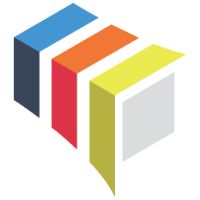QUESTIONS? CALL:
+1 (833) BOODSKAp
Leveraging IoT for Advanced Crop Management with Boodskap | Nathan Gray
Leveraging IoT for Advanced Crop Management with Boodskap
- In the contemporary agricultural landscape, the integration of IoT (Internet of Things) technology into crop management has revolutionized traditional farming practices. IoT solutions offer farmers unprecedented control over their crops, enabling precise monitoring and management to maximize yield and efficiency. Boodskap's IoT Platform as a Service (PaaS) provides a robust, scalable solution tailored to meet the needs of modern agriculture. This blog explores how IoT can enhance crop management and the specific features Boodskap offers to empower farmers.
- IoT sensors deployed in fields can provide real-time data on various environmental parameters, including soil moisture, temperature, humidity, and light intensity. Boodskap's platform integrates seamlessly with these sensors to deliver continuous monitoring, helping farmers make data-driven decisions.
- Soil Moisture Sensors: Track moisture levels to optimize irrigation schedules, ensuring crops receive the right amount of water.
- Temperature Sensors: Monitor ambient and soil temperatures to protect crops from extreme weather conditions.
- Light Sensors: Measure light intensity to ensure crops receive adequate sunlight for optimal growth.
- Precision agriculture leverages IoT technology to apply resources like water, fertilizers, and pesticides more efficiently. Boodskap’s platform uses data from various sensors to provide precise recommendations, reducing waste and improving crop health.
- Variable Rate Technology (VRT): Adjusts the application rates of inputs based on real-time data, enhancing efficiency and reducing costs.
- Drones and Aerial Imaging: Equipped with multispectral cameras, drones can assess crop health, identify pest infestations, and monitor growth patterns.
- Boodskap’s platform offers advanced data analytics tools that transform raw data into actionable insights. Farmers can visualize data through user-friendly dashboards, making it easier to understand trends and patterns.
- Real-Time Dashboards: Display current conditions and historical data for easy comparison and analysis.
- Predictive Analytics: Use historical data to predict future conditions and potential issues, allowing for proactive management.
- Farmers can set thresholds for various parameters, such as soil moisture or temperature. If these thresholds are breached, the platform automatically sends alerts via SMS, email, or mobile app notifications, enabling timely interventions.
- Customizable Alerts: Tailor notifications based on specific needs and conditions.
- Multi-Channel Notifications: Receive alerts through multiple channels to ensure critical information is always accessible
- A farmer using Boodskap’s IoT platform deploys soil moisture, temperature, and light sensors across their fields. The sensors collect data continuously and transmit it via LoRaWAN to the central platform. The platform analyzes the data and provides insights and recommendations on the dashboard. For instance, if soil moisture drops below a certain level, the system alerts the farmer to irrigate the field. This ensures crops receive the optimal amount of water, improving yield and resource efficiency.
- Increased Crop Yield: By leveraging real-time data and precise recommendations, farmers can optimize their practices to enhance crop productivity.
- Resource Efficiency: IoT technology helps in reducing the use of water, fertilizers, and pesticides, lowering operational costs and environmental impact.
- Improved Decision-Making: With access to accurate and timely data, farmers can make informed decisions that improve overall farm management.
- Connectivity: Ensuring reliable connectivity in remote and rural areas can be challenging. Boodskap’s platform supports various IoT protocols like LoRaWAN, Zigbee, and NB-IoT, which are designed to work in low-connectivity environments.
- Data Security: Protecting the vast amounts of data collected by IoT devices from cyber threats is crucial. Boodskap’s platform includes robust security features to safeguard data integrity and privacy.
- The integration of IoT technology into crop management offers significant benefits, from increased yield and resource efficiency to improved decision-making. Boodskap's IoT Platform as a Service provides the tools and solutions needed to leverage IoT effectively in agriculture. By adopting these advanced technologies, farmers can ensure sustainable and profitable farming practices.
- For more information on how Boodskap’s IoT Platform can transform your agricultural operations, visit Boodskap.io.

